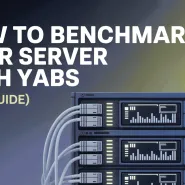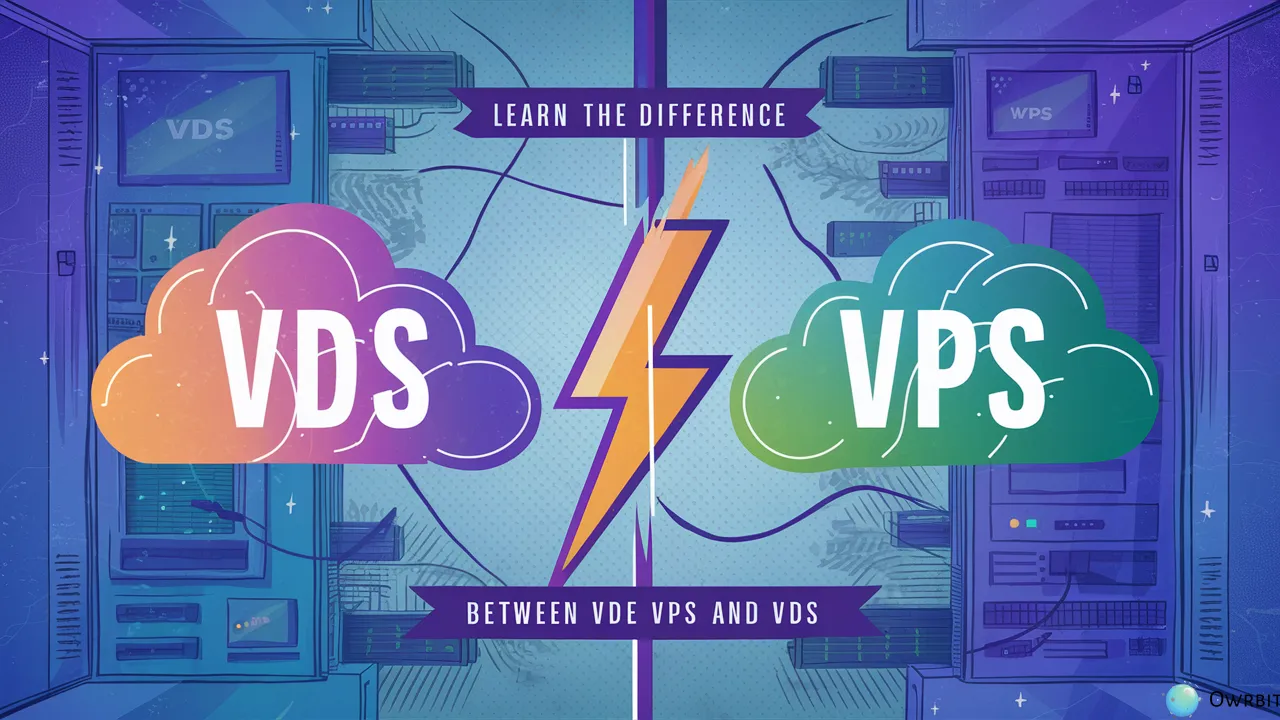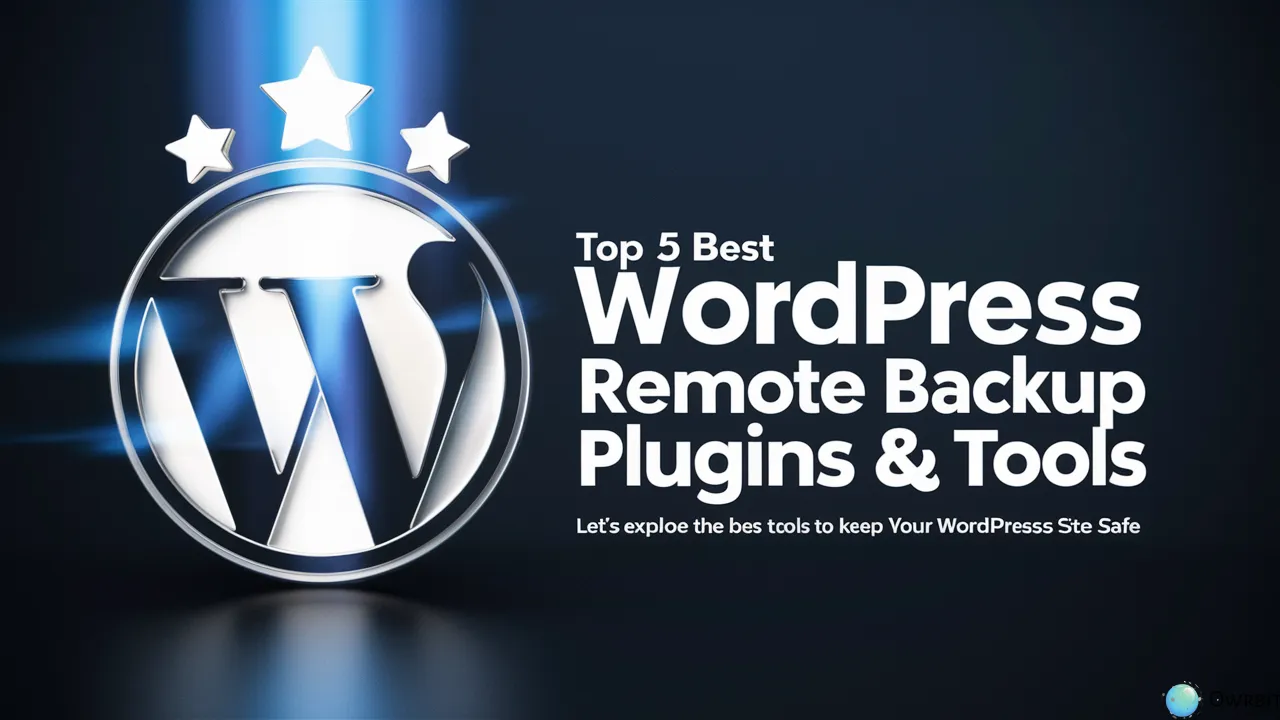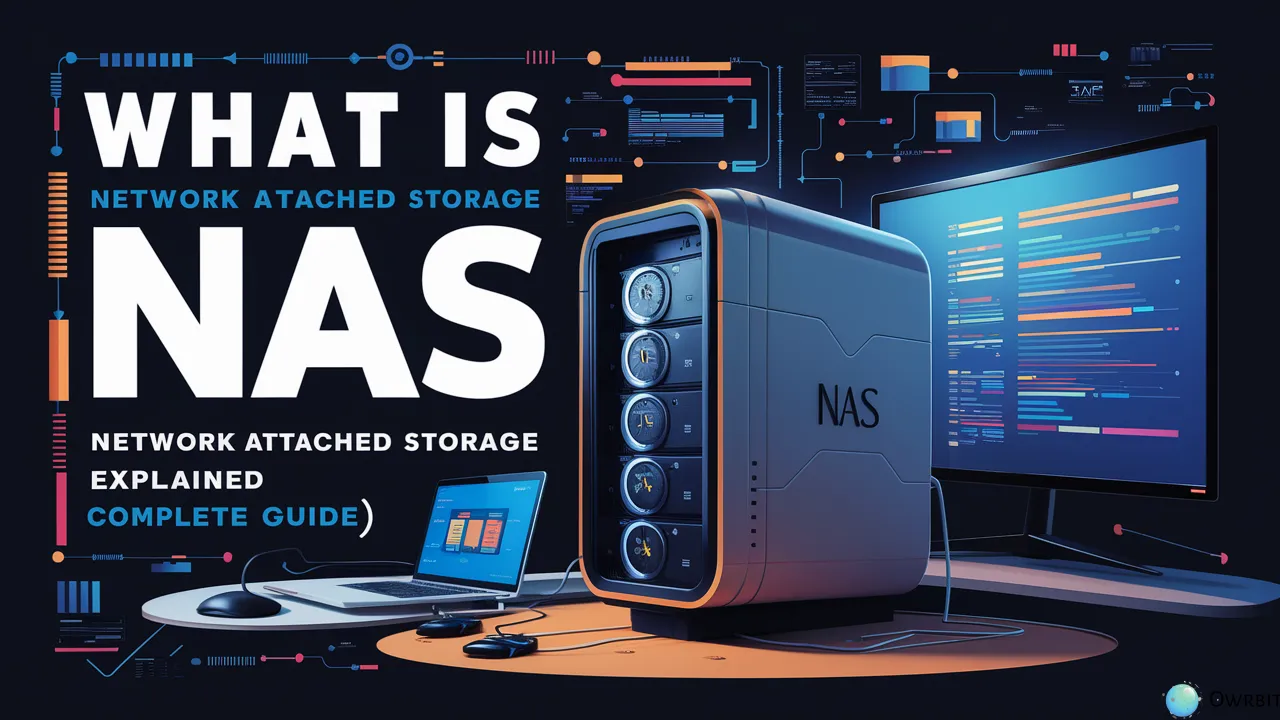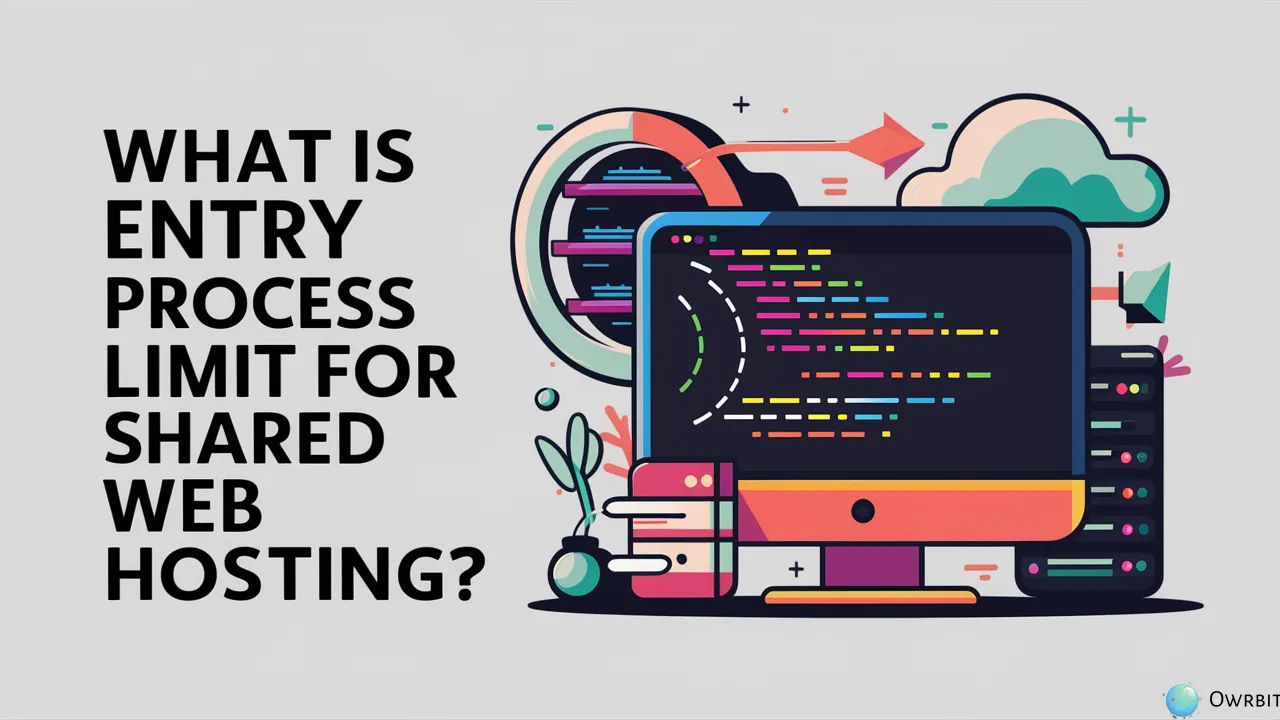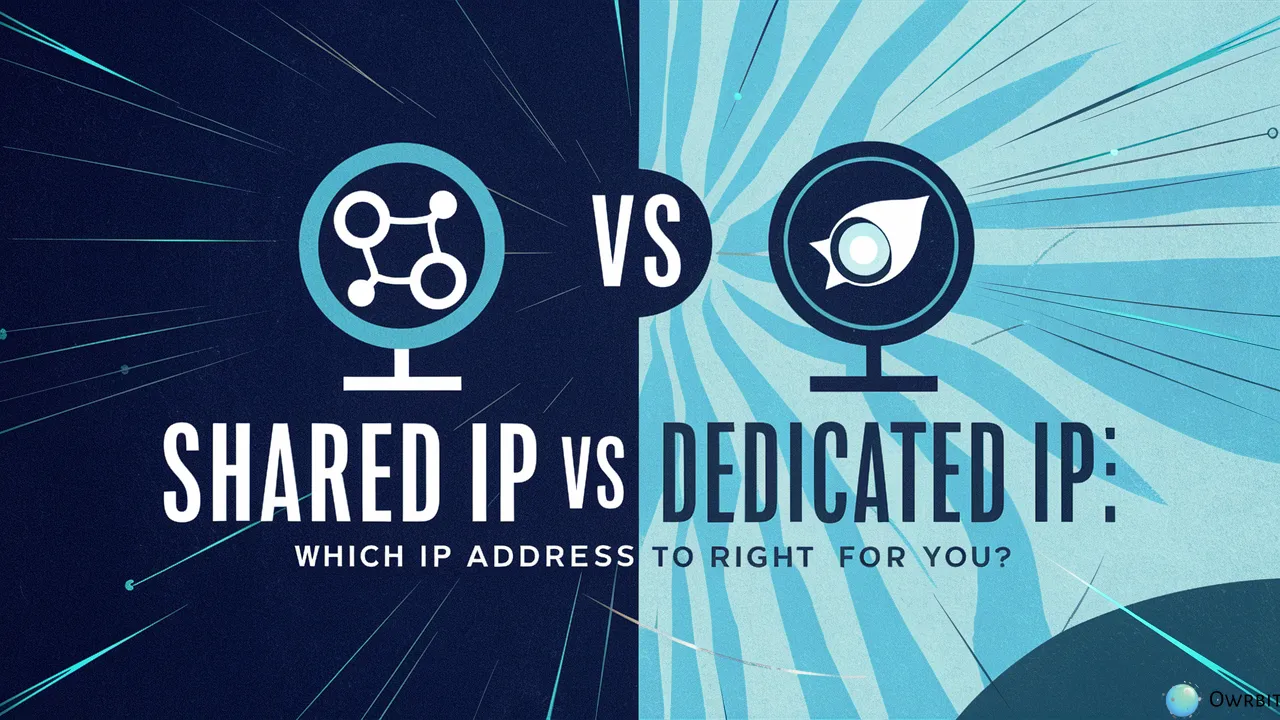If you’re exploring web hosting options, you’ve probably come across the terms VDS vs VPS. At first, they may sound alike—but there’s actually a big difference between VPS and VDS, and choosing the right one can impact how your website performs, how secure it is, and how easy it is to manage.
At Owrbit, we want to make this simple for you.
Let’s start with VPS. A Virtual Private Server (VPS) is created by dividing a big physical server into smaller virtual ones. Each user gets their own section with dedicated resources, but you’re still sharing the physical machine with others. It’s like renting an apartment in a big building—you get your own space, but some things are still shared.
A VPS is a great choice if you’re running a small to medium website. It’s affordable, flexible, and you can upgrade when you grow. This makes VPS popular for bloggers, startups, and small online stores.
Now let’s look at VDS. A Virtual Dedicated Server (VDS) also splits a physical server, but gives you a much more isolated and powerful space. With a VDS, you get full control over your portion of the server—like owning a townhouse instead of renting an apartment. You can install anything you want, change any setting, and enjoy better performance and higher security.
This is why VDS is a better option for large businesses or websites with heavy traffic. It’s also perfect if your site handles sensitive data or needs top-level performance.
So, what’s the difference between VPS and VDS?
- VPS shares more resources with others
- VDS gives you more control and power
- VPS is cheaper and great for beginners
- VDS is stronger and built for advanced users or high-demand sites
Still not sure which one to go with? Think about your website’s size, how much traffic you expect, and whether you need full control of the server.
By the end of this guide, you now understand the difference between VPS and VDS, and how each option fits different needs. The VDS vs VPS decision can affect your site’s speed, safety, and ability to grow—so it’s worth thinking through.
Whether you’re just starting a blog or running a large business, knowing the real difference between VPS and VDS will help you make a smart choice.
Let Owrbit guide you through the VDS vs VPS journey—so you get the best hosting for your website!
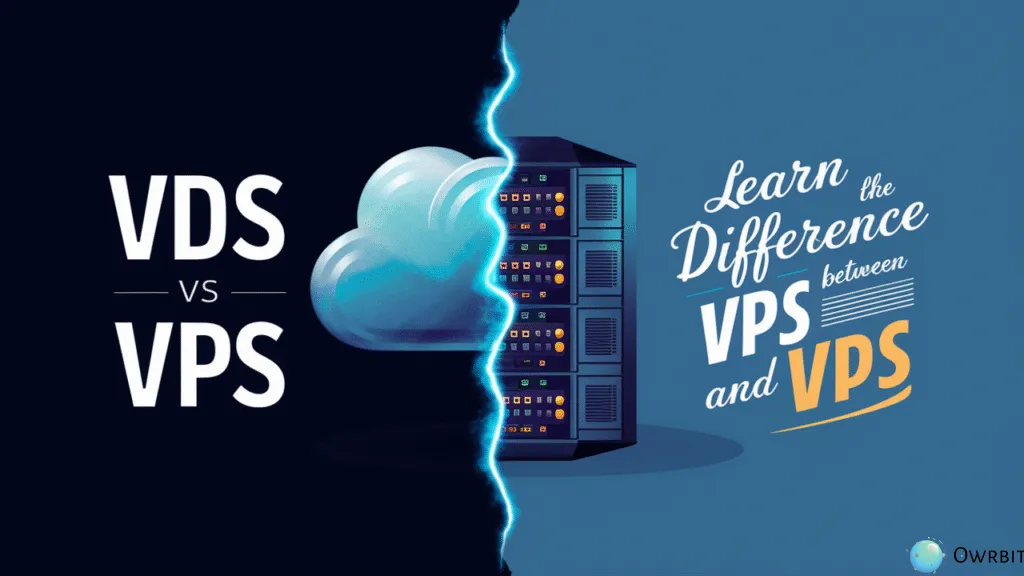
Introduction to VDS and VPS :
When it comes to hosting a website, choosing the right type of server is one of the most important decisions you’ll make. Two common types you’ll hear about are VDS (Virtual Dedicated Server) and VPS (Virtual Private Server). Both are popular solutions that offer virtualized environments for hosting websites, applications, or services, but they differ in how they manage resources and control.

A VPS is a virtual server created by splitting a physical server into several smaller virtual machines. Each VPS has its own resources (like CPU, RAM, and storage), but these are still shared with other users on the same physical server. It’s a great starting point for small to medium websites because it’s affordable and offers decent performance.
A VDS, on the other hand, gives you a more powerful and isolated environment. Although it also runs on a virtual machine, a VDS offers dedicated hardware resources and greater customization. It’s ideal for larger businesses, high-traffic websites, or those needing stronger security and more control.
Understanding the difference between VPS and VDS will help you choose the right hosting option for your needs. In this guide, we’ll break down the key differences in simple terms to help you confidently decide between VDS vs VPS.
What is VPS (Virtual Private Server)?
A VPS, or Virtual Private Server, is a type of hosting where a physical server is divided into multiple virtual servers using special virtualization software. Each VPS acts like its own private server with dedicated resources such as CPU, RAM, and storage, even though the physical server is shared with other users.
Think of it like living in an apartment building. You have your own private apartment with your own keys, furniture, and utilities—but the building itself is shared with other residents. Similarly, with a VPS, you get your own space, control, and resources, while still sharing the overall server with others.
VPS hosting gives you more control and better performance than shared hosting, without the high cost of a full dedicated server. You can install your own software, manage security settings, and scale resources as your website grows.
Checkout Get the Best Anonymous VPS Hosting: Secure Server Solutions by Owrbit

Common Use Cases for VPS :
VPS hosting is a great choice for many types of users and businesses. Here are some common use cases:
- Small to Medium Websites: Perfect for blogs, business sites, or personal portfolios that need more power than shared hosting.
- Ecommerce Stores: Online shops that require better performance and data security.
- Developers and Test Environments: Ideal for running test servers or development environments with full control over configurations.
- Web Applications: Hosting applications that demand reliable uptime and consistent performance.
- Hosting Multiple Websites: Agencies or developers managing several client websites can use VPS to separate projects efficiently.
- Email Servers or File Storage: VPS is often used to host private email servers or secure file storage solutions.
Pros and Cons of VPS Hosting :
Before choosing your hosting solution, it’s important to weigh the pros and cons of VPS hosting. While many users consider VPS a middle-ground option in the VDS vs VPS debate, it’s essential to understand its strengths and limitations. Knowing this helps highlight the true difference between VPS and VDS, especially for growing websites.
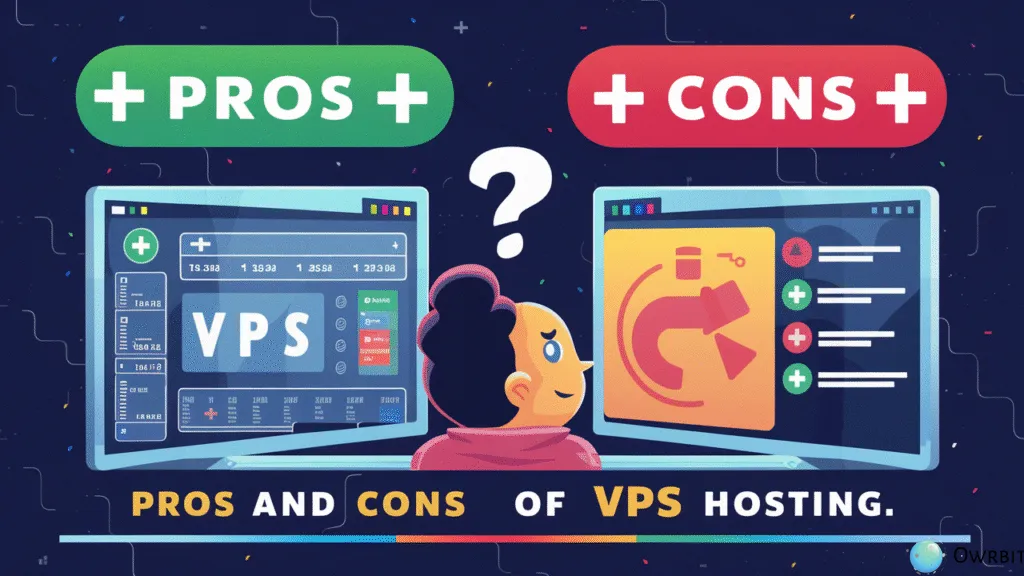
✅ Pros of VPS Hosting :
- Cost-Effective Hosting Option
- A VPS is much more affordable than a Virtual Dedicated Server. In the VDS vs VPS comparison, VPS clearly wins in terms of budget-friendly hosting for beginners and small businesses.
- Dedicated Resources in a Shared Environment
- Unlike shared hosting, a VPS gives you dedicated CPU, RAM, and storage. This is one key difference between VPS and VDS—you get resource allocation, but within a shared physical server.
- Easy to Scale
- VPS plans can be upgraded easily as your website grows, making them a smart choice for businesses expecting gradual traffic increases.
- Root Access and Server Control
- With VPS hosting, you get admin-level access to install custom software or configure settings—something not possible on shared hosting.
- Better Security Than Shared Hosting
- Even though you’re on a shared physical server, each VPS is isolated, which means other users can’t access your files or data.
- Customizable Hosting Environment
- Whether you want to choose your operating system, control panel, or software stack—VPS gives you that flexibility.
❌ Cons of VPS Hosting :
- Still a Shared Physical Server
- In the VDS vs VPS comparison, VPS shares the hardware with other users, which may cause occasional slowdowns under heavy load.
- Not Ideal for High-Traffic or Resource-Heavy Sites
- If your site needs consistent high performance or runs large applications, this is where the difference between VPS and VDS matters most. VDS offers more power and isolation.
- Requires Technical Knowledge
- Managing a VPS (especially an unmanaged one) requires basic understanding of server administration.
- Security Depends on Configuration
- While VPS is secure, you’re responsible for applying proper firewall rules, updates, and patches unless you go with a managed VPS plan.
In summary, a VPS is a powerful step up from shared hosting and is ideal for small to medium websites. It offers excellent value for money and is often the preferred option in the VDS vs VPS debate for users who want better control and performance without paying for a full dedicated setup. However, knowing the difference between VPS and VDS can help you decide if you need something more powerful—like a VDS.
VPS is a middle-ground solution—more powerful and flexible than shared hosting, yet much more affordable than a full dedicated server. It’s one of the most popular hosting choices for growing websites.
What is VDS (Virtual Dedicated Server)?
A VDS, or Virtual Dedicated Server, is a type of hosting that offers a more powerful and isolated environment compared to a VPS. Like a VPS, a VDS is created by using virtualization technology to divide a physical server. However, the key difference is that a VDS gives you a much larger and truly dedicated portion of the server’s resources—such as CPU, RAM, and storage—with minimal to no resource sharing with others.
Think of a VDS like owning a townhouse in a gated community. You still share the land with others, but your house is fully yours—more space, more privacy, and more control. A VDS offers a similar experience in the digital world, giving you root-level access, full customization, and consistent high performance.
This setup is perfect for websites or applications that need top-tier reliability, faster speed, and higher security. It’s also better suited for users who want advanced control over server settings and software.
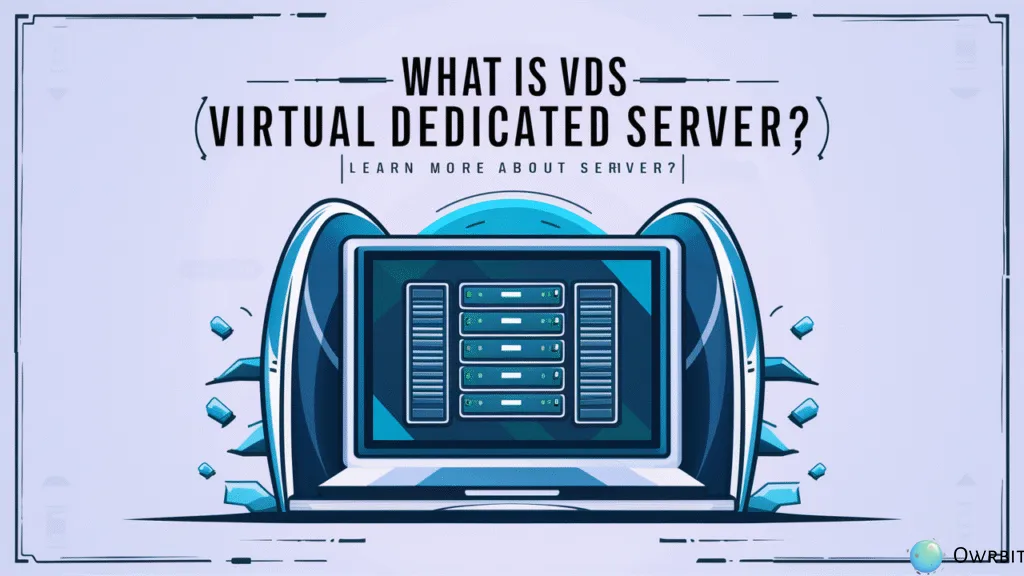
Common Use Cases for VDS
A Virtual Dedicated Server is ideal for businesses and developers that demand performance and flexibility. Here are some common use cases:
- High-Traffic Websites: Websites that receive a lot of daily visitors and need strong uptime and fast load speeds.
- Large Ecommerce Stores: Online stores handling thousands of products, user logins, and transactions benefit from VDS power.
- Custom Software Hosting: Perfect for hosting large or complex software that requires custom server configurations.
- Game Servers: Many gaming communities use VDS to host private game servers with better performance and lower latency.
- Enterprise Applications: Businesses running ERP, CRM, or other internal tools that require a stable, dedicated environment.
- Web Hosting Resellers: Agencies and hosting providers who need to manage and isolate client websites securely.
Pros and Cons of VDS Hosting :
As your website or application grows, you may start exploring stronger hosting solutions. One powerful option is a Virtual Dedicated Server (VDS). While VPS is often enough for smaller projects, a VDS offers more control, security, and performance. Understanding the pros and cons of VDS hosting is key to making the right choice—especially when comparing VDS vs VPS.
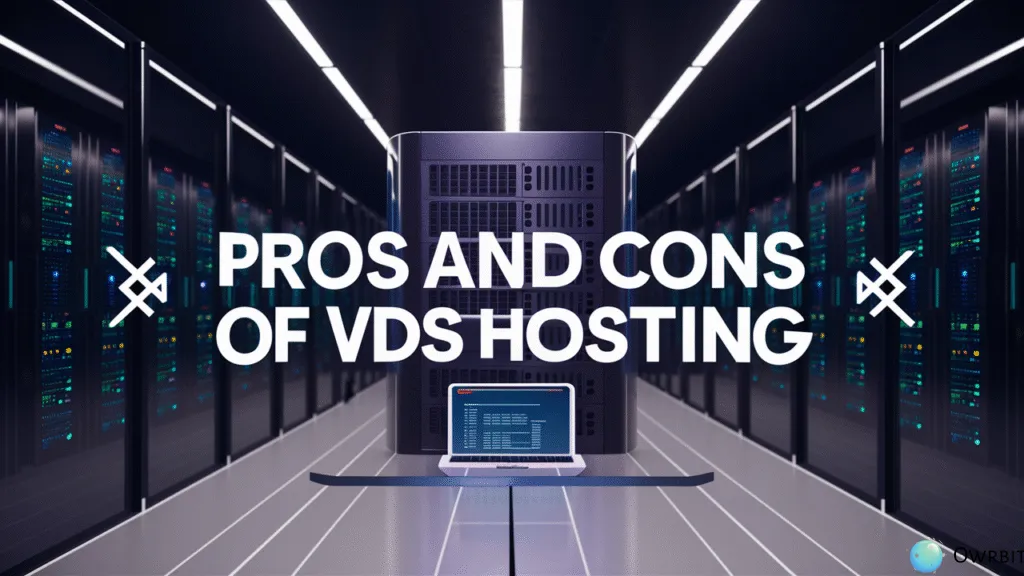
✅ Pros of VDS Hosting :
- Truly Dedicated Resources
- Unlike a VPS where the physical server is shared, a VDS gives you a larger, dedicated slice of the server’s CPU, RAM, and storage. This is a major difference between VPS and VDS—you don’t compete with other users for performance.
- High Performance for Demanding Projects
- If you run a high-traffic website, an enterprise app, or a resource-heavy tool, a VDS ensures consistent speed and uptime even under pressure.
- Full Root Access and Customization
- Just like a dedicated server, you can fully control your VDS environment. Install any software, tweak system settings, or optimize performance to match your needs.
- Enhanced Security and Isolation
- In the VDS vs VPS comparison, VDS stands out for offering stronger security. Since your environment is more isolated, there’s a lower risk of vulnerabilities caused by other users.
- Better for Compliance and Sensitive Data
- If your business handles secure transactions, customer data, or needs to follow strict compliance guidelines, VDS is often the better choice.
- Stable and Reliable Hosting
- With no resource contention, a VDS ensures high uptime and reliable performance—ideal for mission-critical applications.
❌ Cons of VDS Hosting :
- Higher Cost Compared to VPS
- A clear difference between VPS and VDS is the price. VDS hosting is more expensive, making it better suited for users with bigger budgets or advanced needs.
- Requires Advanced Technical Skills
- VDS hosting usually requires good server management knowledge. Beginners may find it complex unless they choose a managed VDS plan.
- May Be Overkill for Small Projects
- If you’re running a basic blog or a small website, the power of a VDS might be more than you need—and more expensive than necessary.
- Fewer Providers Offer It
- While VPS hosting is widely available, not all hosting companies offer true VDS solutions, so choices may be limited.
VDS is a great option for websites or businesses that need full control, top-level security, and consistent high performance. While it’s more expensive than a VPS, the benefits can be worth it for serious projects. When comparing VDS vs VPS, understanding your resource needs and budget is the key to deciding what works best. The difference between VPS and VDS becomes clear when you start handling bigger traffic loads or more complex systems.
With its greater power, control, and stability, a VDS is a smart investment for websites or projects that have outgrown the limitations of shared or VPS hosting.
VDS vs VPS: Key Differences Comparison Table
| Feature | VPS (Virtual Private Server) | VDS (Virtual Dedicated Server) |
|---|---|---|
| Resource Allocation | Shared with other VPS users (but isolated) | Dedicated resources with minimal or no sharing |
| Performance | Good, but can vary under heavy load | High and consistent performance |
| Customization | Moderate – root access but limited compared to VDS | Full root access with complete server control |
| Security | Better than shared hosting, but not completely isolated | Stronger isolation and security |
| Scalability | Easily scalable for growing websites | Also scalable, but usually more resources from the start |
| Cost | More affordable, ideal for budget-conscious users | Higher cost, suitable for high-performance needs |
| Use Case Suitability | Best for small to medium websites, blogs, small eCommerce stores | Ideal for large websites, enterprise apps, high-traffic platforms |
| Management Complexity | Easier to manage, suitable for beginners and intermediates | More technical, suited for advanced users or sysadmins |
How to Choose Between VPS and VDS for Your Business :
Choosing between VPS and VDS depends on your website’s current needs, technical requirements, and budget. While both options are better than basic shared hosting, knowing the real difference between VPS and VDS helps you pick the best fit for your business goals.
Here’s a quick guide to help you decide:
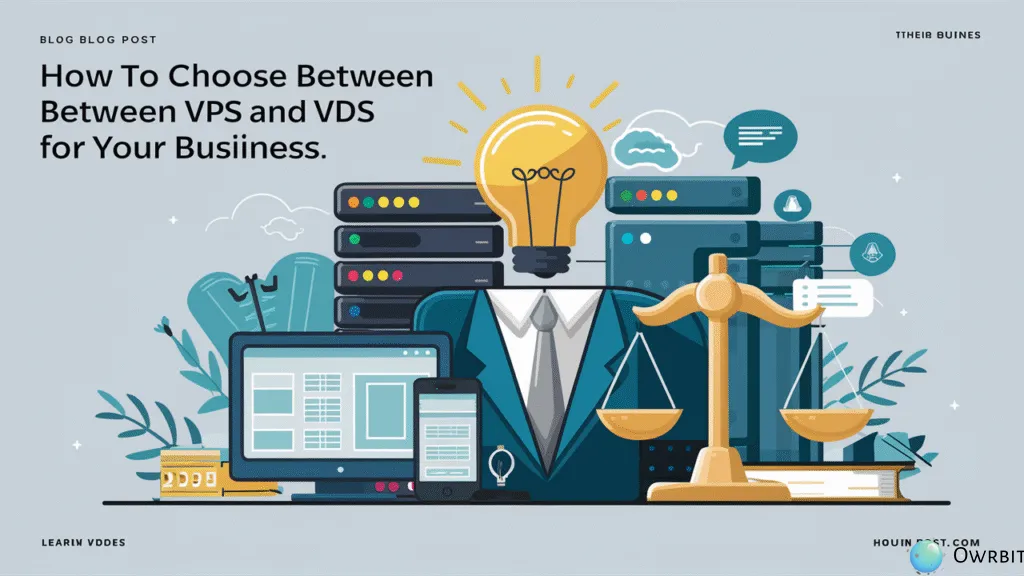
✅ Choose VPS if:
- You’re running a small to medium-sized website or blog
- VPS is perfect for businesses just starting out or managing moderate traffic. It’s affordable and flexible enough for growing websites.
- You want better performance than shared hosting, but on a budget
- VPS gives you a dedicated portion of resources, making it a big upgrade without the high cost of a VDS.
- You don’t need full root-level control all the time
- VPS gives you enough control to manage your site efficiently but doesn’t require deep server expertise (especially if you use managed VPS hosting).
- You plan to scale gradually
- If you expect your traffic to grow slowly, VPS is easier to upgrade over time.
✅ Choose VDS if:
- Your website gets high traffic or needs guaranteed performance
- In the VDS vs VPS comparison, VDS provides more stability and power—ideal for handling lots of users at once.
- You run a large eCommerce site, game server, or enterprise application
- These require strong uptime, security, and custom configurations, which VDS handles better.
- You need full control over the server environment
- VDS gives you complete root access to install custom software, configure settings, and secure your environment.
- You’re concerned about security or compliance
- A VDS offers stronger isolation, which is important for handling sensitive customer data or meeting compliance standards.
🔍 Ask Yourself These Questions:
- What’s my monthly budget for hosting?
- How much traffic does my website get?
- Do I need full root access or just basic control?
- How important is speed, uptime, and performance?
- Do I have technical knowledge to manage a server, or do I need help?
The main difference between VPS and VDS comes down to control, performance, and pricing. VPS is great for most startups and growing websites, while VDS is better suited for large-scale projects that need guaranteed power and security. Your choice in the VDS vs VPS debate should align with your business’s growth plans, resource demands, and technical expertise.
Conclusion: Making the Right Choice for Your Needs
When deciding between VDS vs VPS, understanding the difference between VPS and VDS is crucial to picking the best hosting for your website or business. VPS offers an affordable, flexible solution ideal for small to medium websites that need better performance than shared hosting. Meanwhile, VDS provides more power, dedicated resources, and higher security, making it perfect for larger, high-traffic sites or applications requiring full control.
Choosing the right hosting depends on your budget, traffic needs, and technical skills. If you want a cost-effective option with decent control and scalability, VPS is a smart choice. But if your project demands strong performance, enhanced security, and total server control, VDS is the way to go.
By clearly knowing the difference between VPS and VDS and weighing the pros and cons in the VDS vs VPS debate, you can confidently select the hosting solution that matches your unique requirements and sets your online presence up for success.
Checkout Get the Best Anonymous VPS Hosting: Secure Server Solutions by Owrbit
Discover more from Owrbit
Subscribe to get the latest posts sent to your email.

